Why Not RSS?
Today many of us want to get updates timely from the services they use: news, shops, jobs, etc. But visiting every service every minute is wasting of the time. One can increase the update period and do it daily. Unfortunately, this means the important update is not early enough. Even worse, the important update may be gone already and lost.
We needed this update check to be automated. And this is the exact purpose of RSS. No more manual visiting. One's favorite feed reader does the trick and checks for updates in the background.
Conclusion 1: an important message should be delivered as soon as it occurs.
Nobody offers RSS
So why this didn't work? The RSS support by popular services gradually decreases every year. More and more services drop their RSS support.
Apple stopped providing RSS for Apple News in 2019. And in 2021, Google removed RSS feeds from Google Groups.
Among others reasons: they don't want to waste their resources. Consider a popular service have 1 million of their feed subscribers. Let's say the approximate feed reader update period is 15 minutes. Then the service has to sustain the load of about 1000 requests per second!
Next, consider that service actually publish updates once a day in a random time. So any average reader will do 95 "dry" requests yielding no new results and only 1 is useful. So the service has to support a permanent load of 1000 RPS where about 99% of requests are waste of resources.
The actual issue is polling. Services don't want you to poll them (for free). The numbers may be different depending on the exact case. But it's always about a tradeoff:
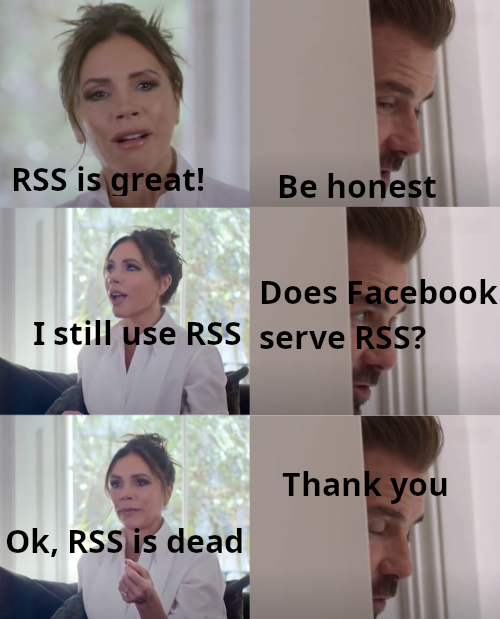
Conclusion 2: a service should push updates to avoid a delay and resource wasting.
Nobody wants Spam
What do services offer instead? They want people to allow push notifications or subscribe-by-email. The problem is that people actually hate this way. We'd never allow notifications from services and sites. We always try to avoid leaving our email for a subscription purpose.

Enough said
Allowing a service to notify is the same as open the door to the hell of spam. Basically, we loose the control on what, where and when we want to receive. And that's why people still love RSS. In their reader, all subscriptions are organized well in one place. Compare it to typical subscriptions when it's very hard to recall of all services that can distract whenever they want.
Poll
👍 Client controls
👎 Inefficient
Push
👎 Service controls
👍 Efficient
Conclusion 3: a client should be able to
Solution
Poll-based feeds like RSS lack the delay control. While existing push-based solutions are impossible to manage in one place. Moreover, all existing before solutions lack the content control.
The above issues are the reason why Awakari has been created. It's free to use service that doesn't store any user data.
Get information from:
Collection is growing.
New integrations are coming.
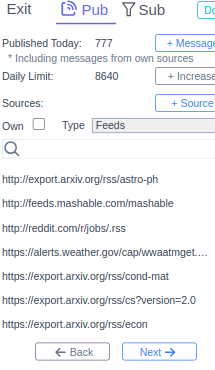
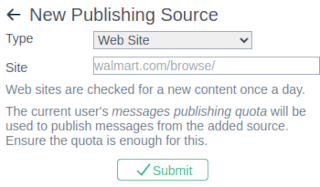
Not enough sources?
Bring your own.
Get rid of spam.
Define what is interesting to get.
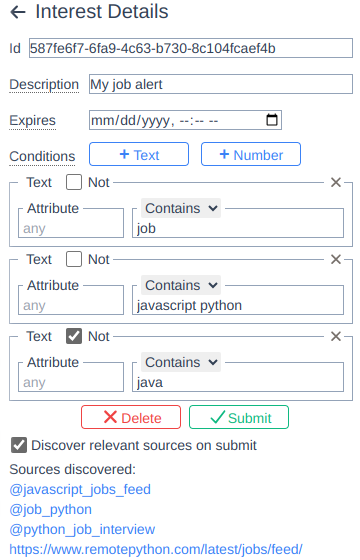
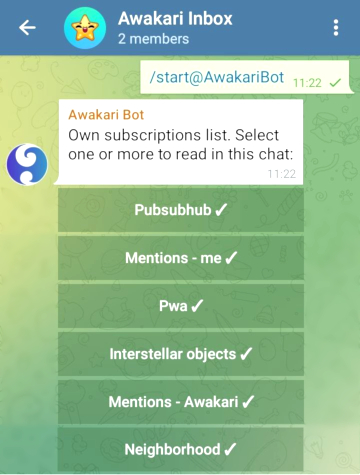
Use Telegram to read.
More integrations are coming.
Andrei Kurilov, 2024